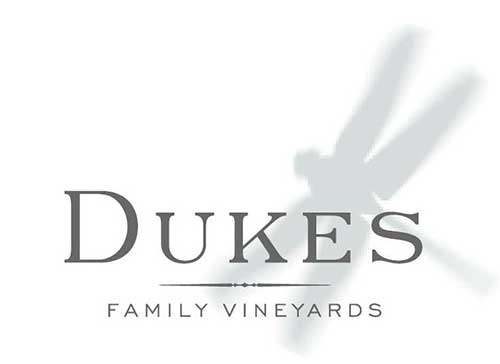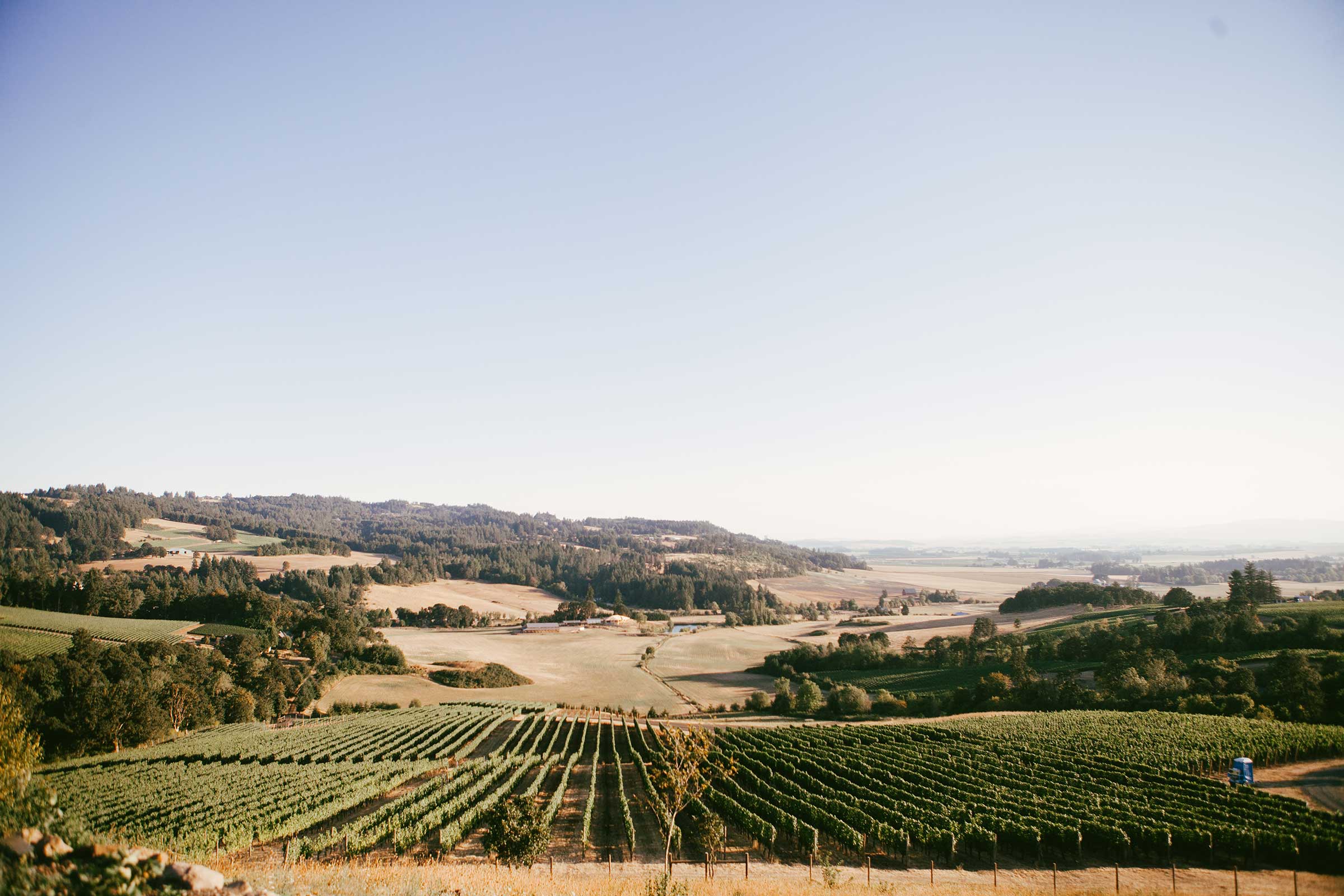The Vineyards
Dukes Family Vineyards is located in the Northern portion of the Eola-Amity Hills AVA in the Willamette Valley of Oregon. As conservators of the land, we are committed to low-impact, sustainability in our farming methodologies and to the continual improvement of the vineyard.
The soils and climatic conditions existing in the North Willamette Valley are amazingly similar (with the exception of rain fall) to those existing in the Burgundy region of France. The Valley’s maritime influences from the Pacific Ocean are moderated by the Coastal Range. The resulting macroclimate offers a long, but cool growing season enabling the grapes to fully ripen. With wet and cool conditions in the winter and warmer, dryer conditions in the summer, the region is ideally suited to Pinot Noir and Chardonnay.
Sitting on Walnut Hill at the North end of the Eola Hills, Dukes Family Vineyards is 58 acres of South facing slope and elevations running from 560 feet to 260 feet. The soils are primarily Willakenzie (sedimentary, dark brown to yellowish-brown silty-clay loam, sandstone origin) in the vineyard blocks and Yamhill (volcanic, silt loam, volcanic basalt origin) in the upper vineyard blocks with other soils types scattered throughout the vineyard, all serving to add a level of complexity to the wines.
The Lower Sections
The lower sections of the vineyard were planted in 1996 with standard nine-foot rows and four and one half foot in-row spacing on sedimentary soils. The following summarizes the lower vineyard plantings:
Dijon Pinot Noir clone 113, 3309 root stock Dijon Pinot Noir clone 115, 3309 root stock, and self-rooted Dijon Pinot Noir clone 777, self-rooted Dijon Pinot Noir clone 828, 3309 root stock Pommard Pinot Noir clone, 3309 root stock Chardonnay clone 76, 3309 root stock Chardonnay mixed clone, 101-14 root stock
In 2023, approximately two acres of new vineyard blocks were planted to Dijon clones 115 and Chardonnay with these plantings expected to come into production beginning in 2025.
The Upper Sections
The upper sections of the vineyard were planted in 2006 with a more Burgundian
approach of higher density (with row spacing of one and one half meters and in-row
spacing of one meter) on volcanic soils. The following summarizes the upper vineyard plantings:
Dijon Pinot Noir clone 667, 101-14 root stock
Dijon Pinot Noir clone 777, 101-14 root stock
Dijon Pinot Noir clone 828, 3309 root stock, and self-rooted
Our vineyard has been designed and planted to provide a complementary combination of elevation change, soils type and clonal diversity, in order to add complexity and depth to the wines. The vineyard is LIVE and Salmon Safe certified. Sustainability is the cornerstone of our farming philosophy. We are constantly striving to protect and enhance the health of the vineyard.




